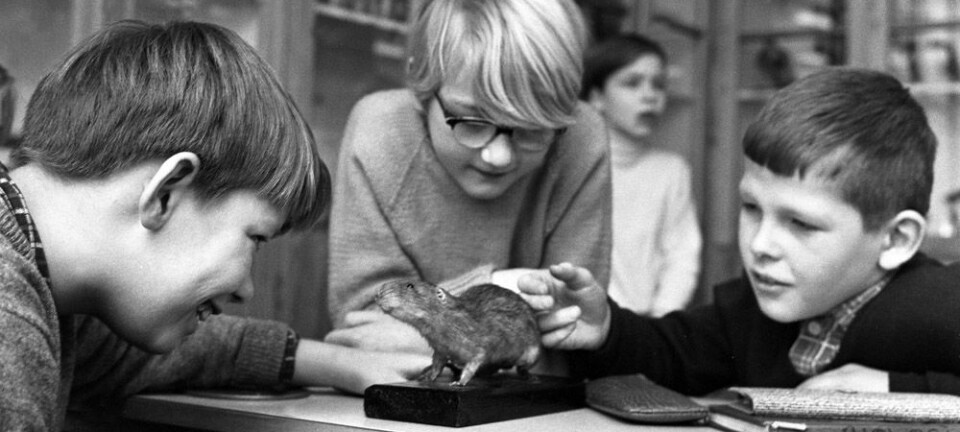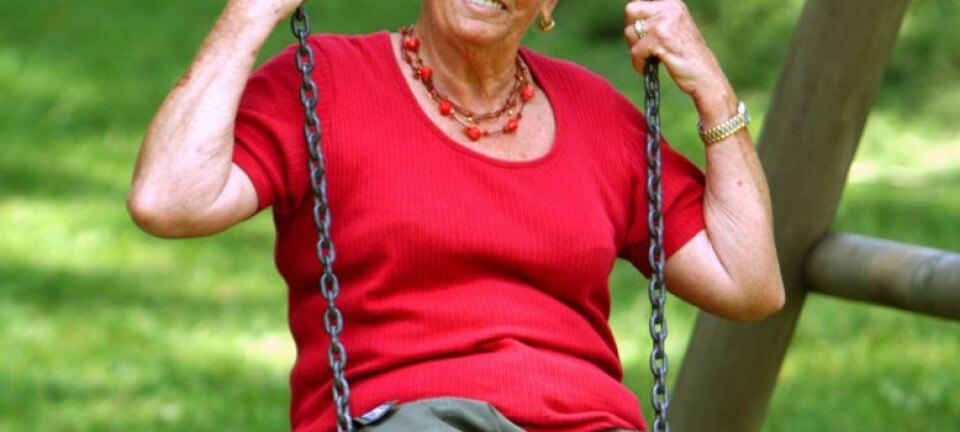
Why grandpa doesn’t want a smart phone
Researchers who interviewed old people in Norrköping, Sweden, don’t think a reluctance to buy new gadgets like a smart phone actually has much to do with telephony per se.
You have probably witnessed that grandfather or grandmother, aged 85 or so, isn’t keen on phasing out his or her 1990s-era Nokia which beeps with each key they push.
This does not necessarily make them Luddites who are down on technological innovation, according to the Swedish researchers Åsa Larsson Ranada and Lars-Erik Hagberg from Linköping University. They interviewed a group of old people about their feelings regarding their homes and personal possessions.
The participants said they didn’t care a whit about keeping themselves technologically update. They aren’t the ones standing in line to get the latest iPhone on its day of release.
But their reasoning might not be what you would expect. They link this reluctance to concern for their families. Their descendants are usually the ones who will be emptying their homes after they die. The old people said possessing lots of new-fangled gadgets or possessions would just make that job all the tougher.

“It’s not so much that the elderly oppose technology. It’s more a case of practicality. New possessions mean extra burdens on their relatives,” says Hagberg in a press release from Linköping University.
Not replacing broken items
The 13 participants in the study were aged 72 to 92. In this type of qualitative study, researchers conduct in-depth interviews to acquire more knowledge about topics which would be hard to illuminate from a study where, say, 500 people respond to a questionnaire.
Svein Olav Daatland, a researcher at Norwegian Social Research (NOVA) in Oslo, comments the findings.
“You need to be cautious about generalising on the basis of a study with such little data material. Given that, the results seem credible,” he says.
The researchers think what emerged most clearly was that the participants generally avoided buying new things, even when their old possessions broke. The felt their houses were already cluttered enough. But there appeared to be some gender differences in this respect.
“Men are more likely to let their children be shouldered with their material goods when they die. Women want to relieve their children from this burden,” says Hagberg in the press release.
More important things
Many social functions in modern Nordic countries are based on internet access and smart phones. Elderly people who refrain from using the new technology become more dependent on others, for instance needing help in using online banking services.
Daatland thinks that opposition to technology can be explained by more than reluctance to buying new things.
“It can be explained by a wish to have control. Many elderly people feel overwhelmed by technology. They also regard the things in their homes as extensions of their identity, tools and symbols as well. Their taste and style was probably formed when they were in middle age. The older generation are not in the vanguard regarding taste, trends and consumption – on the contrary.”
“According to general theories about ageing, when people reach a high age material goods become less valuable than things with more symbolic significance. Many give priority to immaterial values, such as spiritual or relational concerns.”
According to Daatland, many elderly people find things that have a history or anecdotal significance more important than functional objects. He thinks this can be both advantageous and detrimental.
“It’s a strong point that such things promote belonging and identity. But it’s a disadvantage for older persons to abstain from acquiring and learning to use new things which could be of help to them – for example a smart phone.”
Daatland also stresses the differences among old people differ regarding their relationships with the stuff they own.
“For instance some people take care of lots of antique things while others buy expensive works of art. As a rule there’s lots of diversity among old people in Norway when it comes to use of new technology.”
Cultural differences
Roger André Søraa is a researcher at the Norwegian University of Science and Technology’s Department of Interdisciplinary Studies of Culture. He says that national differences are also seen in how the elderly in various countries utilise new technology.
“I’ve found that older people in Japan generally have a more open attitude regarding new technology than the elderly in Western countries. An example is their more attitudes toward the use of robots in certain arenas of care for the elderly,” he says.
“The way the elderly adapt to technology is crucial for their quality of life. Thus the Swedish study gives a good contribution toward better understanding of this,” he concludes.
Translated by: Glenn Ostling










